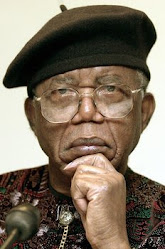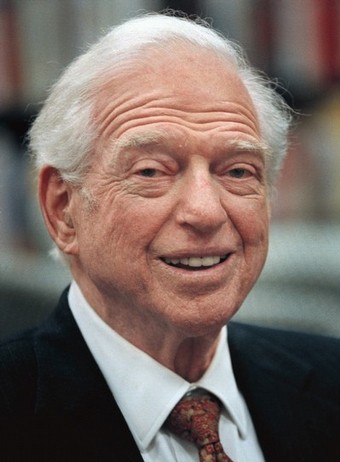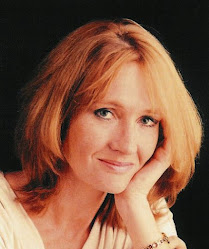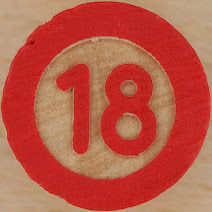There’s a clinic situated in an area called Obigbo, on the outskirts of Port-Harcourt. I went there to visit someone who is related to someone I know well. The clinic sits on a large piece of land, but the building is not big and it looks smaller than it really is because of size of the land. Only the side of the building facing the gate is painted and the area is secluded, I had to walk a good distance inside to get to it. It’s called Grace Clinic.
I went inside the clinic and walked up to the front desk. There was only one nurse standing behind a box shaped desk. I heard sounds coming from a radio set but I did not see the radio. She looked up and kept staring until I reached the front of her desk. I gave her the name of the person I wanted to see and she gave me directions to the ward. On my way to the ward, I walked past doors with see-through glass on them. I could not see much and I did not try to peep. All I heard as I passed were indistinct voices and coughing. Before I reached the door of the ward I was going to, three nurses came out. I paused and spent a full minute, wondering if I should just turn back and go home, and then I walked inside after turning my tape recorder on. The nurse had said that his bed was the fifth one from the wall on my left. The guy that sat in the fifth bed was very thin, but not as thin as I thought he would be. His cheeks were hollowed, his arms were thin. He looked like he had shrunk, like he used to be big before. He saw me enter and stared at me until I reached his bed.
‘Good Afternoon.’
He stared at me and then at my Bagco bag. He was sitting down with pillows between his back and the iron post of his bed. He cleared his throat slowly and nodded, and then he pointed to a chair two beds away. I carried the chair and as I was returning to his bed, I noticed some of the other people in the ward were looking at me.
‘My name is Nnamdi.’ I told him after I sat down. ‘I’m Chiagozie’s (not his real name) friend. I don’t know if he told you I will come.’
‘Yes, he told me.’ His voice sounded tired and he took his time to answer. We were silent for sometime. He was looking at me and I did not know how to continue.
‘He said that you write.’ He asked me after a while.
‘Yes.’
‘What do you know HIV & AIDS is?’ He asked quietly.
‘It’s a disease that makes people get sick and die. It has no cure yet and it’s spread most of the time by sexual intercourse.’ I kept quiet and wondered if my answer was too elementary. He made a derisive sound in his throat, scratched his arm and looked at the empty bed beside us. After some time, he turned to me and said:
‘HIV does not make you sick, it only makes your immune system weak and that means your immune system cannot protect you again when other sicknesses and infections come your way. It’s a virus that damages the body’s immune system and allows other illnesses and infections to make you sick. Any infection that comes, your body’s cells will not be able to fight it. Shay you understand? Now, contacting any of those infections means a person is diagnosed with AIDS. I don’t know if you get me. Having HIV doesn’t mean you have AIDS. They are not the same thing.’ I nodded. To say I was embarrassed at that point is an understatement.
‘Did you come here by yourself or your family brought you here?’ I asked quietly.
‘No one brought me. I came when I felt too weak to continue work. All the excuses I was giving people about stress from work and exercise could not explain why I was becoming very thin and people began to show they suspected I had the virus. I don’t want to talk much about my family. My father is an educated man who doesn’t believe people with this illness should be doing all those adverts you see on NTA where people come out and say they want to be open about their status.’
‘How is this place? How does the staff treat their patients? I looked around. There was a crude structure on the ceiling to support his mosquito net, now brown with dust and dirt in some places. There were some broken louvers in the windows. The other people in the ward were either sleeping or lying down quietly. There was a small TV set in one corner that I know will be hard to watch from his position because of its size. Breeze was blowing across the ward because of the strategically placed windows that make cross ventilation possible.
‘As you’re seeing it, that’s how it is. NEPA wahala is worse than usual here because there are not plenty people living in this area. Anytime it comes, we take. There are some people who cook for the clinic. There are not enough nurses working here because people don’t want to work in this kind of place. We’ve had some nurses and caretakers who tell us to our face that we lived a bad, immoral life and now God is punishing us....God never sleeps, that kind of thing.
Some people who come here are brought by their family at night as if they have been hiding them since. The people that have money pay for private wards and special food. The patients who have Tuberculosis are kept at the other end of the hospital. This ward has more space now, before when there were more patients, they moved in more beds to contain more people. One thing is that many people come here in the final stages of the disease and die quickly, like the people that stayed in these two beds.’ He pointed to the empty ones by my side. ‘The ones that their people don’t come to carry their dead bodies- which is eighty percent of us, the clinic people bury themselves, there’s a special place they use, I don’t know exactly. Mosquitoes disturb us a lot, especially since that window was broken early this week. Sometimes, only sometimes, they spray insecticide inside here, those types that don’t bother us because we can’t leave the room. Some of us, who have it, always use treated mosquito nets every night.’
‘Where do you people get your medicine from?’ There were some medicine bottles on his side table but I could not see their names because I was far away.
‘We have to pay a different amount for the drugs. People complain most times about missing medicines, which is not funny when you look at how expensive it is, so everyone locks their own inside their bedside locker to keep them safe. The drugs are really expensive and then, sometimes we get good reason to believe some are fake. For instance a lot of our drugs have certain side effects. Some times when we take the drugs, we don’t get the usual side effects, it can be scary. I don’t bother myself with that one because I have no option. Only God can help us.’
‘How do you pay for all this?
‘I used to work for...' It’s one of the BIG telecommunications companies here in Nigeria. ‘My salary was okay. When I was working, I did not have a lot of people who depended on me so I kept most of my salary. A lot of it has gone into buying drugs and feeding, but there are so many people here that I’m better than. People with this illness need to eat very well and drink a lot of water, especially to wash down the plenty medicines. These medicines stop the duplication of HIV inside the cells and this stops the virus from taking over the immune system as it does when it’s not checked.’
‘There’s a bill the government approved that makes it punishable to discriminate against people with HIV & AIDS.’ I told him.
‘I heard about it, forget that thing. It won’t change anything. People are just too scared of the thing. Would you let somebody related to you stay in your house if you find out they have AIDS?’ He asked watching me carefully.
‘Yes.’ I replied. He looked doubtful.
‘Even if, will you still treat them normally?’
‘Yes I will.’ I answered.
‘So why is your chair so far away? Why are you sitting so far away, do you think you’ll catch it?’ His voice was still quiet and tired but I did not miss the accusing tone. There was silence. I was surprised by his directness.
‘When I came I was not sure if you had TB or not so I decided not to sit too close.’
‘Even if, there’s still a way you’re doing your body like you are afraid of contacting.’ After that statement, I did not know how to continue, I just shut up.
‘Where do you say you publish what you write?’ He asked me again, still watching me.
‘On my blog...it’s like a website. I write stuff and put there for people to read and sometimes they comment.’
‘What kind of things do you put there?’ He was asking in the same tone he had used to answer my other questions. It was as if nothing happened.
‘Experiences, sometimes stories…anything I can put.’
“Won’t they think this is another one of those your stories?’
‘No. There’s a way I let them know whether what I’m writing is true or made up.’ (Dear Reader please check the Label at the bottom of this post) ‘Do you want to read it before I post it on my blog?’
‘If it won’t stress you, bring me a copy.’
‘Okay. I brought some fruits...please manage it.’
‘You’ve tried. Thank you.’
‘I have to go now so I can get home early. There’s always hold up at Oil Mill junction on Wednesdays.’ He nodded. I stood up nervously, went closer to him and then I extended my hand. He looked me in the eye and grasped it. We shook and then I turned to go, and I felt his eyes on my back even when I closed the door of his ward. There were some other questions I had wanted to ask him but I lost the nerve.
I can’t find words to label the experience. I can’t find words my parents would use if they ever discover I went to visit someone living with HIV. My brother will never ever believe I did this. It’s another one on my list of unforgettable experiences.
I went inside the clinic and walked up to the front desk. There was only one nurse standing behind a box shaped desk. I heard sounds coming from a radio set but I did not see the radio. She looked up and kept staring until I reached the front of her desk. I gave her the name of the person I wanted to see and she gave me directions to the ward. On my way to the ward, I walked past doors with see-through glass on them. I could not see much and I did not try to peep. All I heard as I passed were indistinct voices and coughing. Before I reached the door of the ward I was going to, three nurses came out. I paused and spent a full minute, wondering if I should just turn back and go home, and then I walked inside after turning my tape recorder on. The nurse had said that his bed was the fifth one from the wall on my left. The guy that sat in the fifth bed was very thin, but not as thin as I thought he would be. His cheeks were hollowed, his arms were thin. He looked like he had shrunk, like he used to be big before. He saw me enter and stared at me until I reached his bed.
‘Good Afternoon.’
He stared at me and then at my Bagco bag. He was sitting down with pillows between his back and the iron post of his bed. He cleared his throat slowly and nodded, and then he pointed to a chair two beds away. I carried the chair and as I was returning to his bed, I noticed some of the other people in the ward were looking at me.
‘My name is Nnamdi.’ I told him after I sat down. ‘I’m Chiagozie’s (not his real name) friend. I don’t know if he told you I will come.’
‘Yes, he told me.’ His voice sounded tired and he took his time to answer. We were silent for sometime. He was looking at me and I did not know how to continue.
‘He said that you write.’ He asked me after a while.
‘Yes.’
‘What do you know HIV & AIDS is?’ He asked quietly.
‘It’s a disease that makes people get sick and die. It has no cure yet and it’s spread most of the time by sexual intercourse.’ I kept quiet and wondered if my answer was too elementary. He made a derisive sound in his throat, scratched his arm and looked at the empty bed beside us. After some time, he turned to me and said:
‘HIV does not make you sick, it only makes your immune system weak and that means your immune system cannot protect you again when other sicknesses and infections come your way. It’s a virus that damages the body’s immune system and allows other illnesses and infections to make you sick. Any infection that comes, your body’s cells will not be able to fight it. Shay you understand? Now, contacting any of those infections means a person is diagnosed with AIDS. I don’t know if you get me. Having HIV doesn’t mean you have AIDS. They are not the same thing.’ I nodded. To say I was embarrassed at that point is an understatement.
‘Did you come here by yourself or your family brought you here?’ I asked quietly.
‘No one brought me. I came when I felt too weak to continue work. All the excuses I was giving people about stress from work and exercise could not explain why I was becoming very thin and people began to show they suspected I had the virus. I don’t want to talk much about my family. My father is an educated man who doesn’t believe people with this illness should be doing all those adverts you see on NTA where people come out and say they want to be open about their status.’
‘How is this place? How does the staff treat their patients? I looked around. There was a crude structure on the ceiling to support his mosquito net, now brown with dust and dirt in some places. There were some broken louvers in the windows. The other people in the ward were either sleeping or lying down quietly. There was a small TV set in one corner that I know will be hard to watch from his position because of its size. Breeze was blowing across the ward because of the strategically placed windows that make cross ventilation possible.
‘As you’re seeing it, that’s how it is. NEPA wahala is worse than usual here because there are not plenty people living in this area. Anytime it comes, we take. There are some people who cook for the clinic. There are not enough nurses working here because people don’t want to work in this kind of place. We’ve had some nurses and caretakers who tell us to our face that we lived a bad, immoral life and now God is punishing us....God never sleeps, that kind of thing.
Some people who come here are brought by their family at night as if they have been hiding them since. The people that have money pay for private wards and special food. The patients who have Tuberculosis are kept at the other end of the hospital. This ward has more space now, before when there were more patients, they moved in more beds to contain more people. One thing is that many people come here in the final stages of the disease and die quickly, like the people that stayed in these two beds.’ He pointed to the empty ones by my side. ‘The ones that their people don’t come to carry their dead bodies- which is eighty percent of us, the clinic people bury themselves, there’s a special place they use, I don’t know exactly. Mosquitoes disturb us a lot, especially since that window was broken early this week. Sometimes, only sometimes, they spray insecticide inside here, those types that don’t bother us because we can’t leave the room. Some of us, who have it, always use treated mosquito nets every night.’
‘Where do you people get your medicine from?’ There were some medicine bottles on his side table but I could not see their names because I was far away.
‘We have to pay a different amount for the drugs. People complain most times about missing medicines, which is not funny when you look at how expensive it is, so everyone locks their own inside their bedside locker to keep them safe. The drugs are really expensive and then, sometimes we get good reason to believe some are fake. For instance a lot of our drugs have certain side effects. Some times when we take the drugs, we don’t get the usual side effects, it can be scary. I don’t bother myself with that one because I have no option. Only God can help us.’
‘How do you pay for all this?
‘I used to work for...' It’s one of the BIG telecommunications companies here in Nigeria. ‘My salary was okay. When I was working, I did not have a lot of people who depended on me so I kept most of my salary. A lot of it has gone into buying drugs and feeding, but there are so many people here that I’m better than. People with this illness need to eat very well and drink a lot of water, especially to wash down the plenty medicines. These medicines stop the duplication of HIV inside the cells and this stops the virus from taking over the immune system as it does when it’s not checked.’
‘There’s a bill the government approved that makes it punishable to discriminate against people with HIV & AIDS.’ I told him.
‘I heard about it, forget that thing. It won’t change anything. People are just too scared of the thing. Would you let somebody related to you stay in your house if you find out they have AIDS?’ He asked watching me carefully.
‘Yes.’ I replied. He looked doubtful.
‘Even if, will you still treat them normally?’
‘Yes I will.’ I answered.
‘So why is your chair so far away? Why are you sitting so far away, do you think you’ll catch it?’ His voice was still quiet and tired but I did not miss the accusing tone. There was silence. I was surprised by his directness.
‘When I came I was not sure if you had TB or not so I decided not to sit too close.’
‘Even if, there’s still a way you’re doing your body like you are afraid of contacting.’ After that statement, I did not know how to continue, I just shut up.
‘Where do you say you publish what you write?’ He asked me again, still watching me.
‘On my blog...it’s like a website. I write stuff and put there for people to read and sometimes they comment.’
‘What kind of things do you put there?’ He was asking in the same tone he had used to answer my other questions. It was as if nothing happened.
‘Experiences, sometimes stories…anything I can put.’
“Won’t they think this is another one of those your stories?’
‘No. There’s a way I let them know whether what I’m writing is true or made up.’ (Dear Reader please check the Label at the bottom of this post) ‘Do you want to read it before I post it on my blog?’
‘If it won’t stress you, bring me a copy.’
‘Okay. I brought some fruits...please manage it.’
‘You’ve tried. Thank you.’
‘I have to go now so I can get home early. There’s always hold up at Oil Mill junction on Wednesdays.’ He nodded. I stood up nervously, went closer to him and then I extended my hand. He looked me in the eye and grasped it. We shook and then I turned to go, and I felt his eyes on my back even when I closed the door of his ward. There were some other questions I had wanted to ask him but I lost the nerve.
I can’t find words to label the experience. I can’t find words my parents would use if they ever discover I went to visit someone living with HIV. My brother will never ever believe I did this. It’s another one on my list of unforgettable experiences.



















